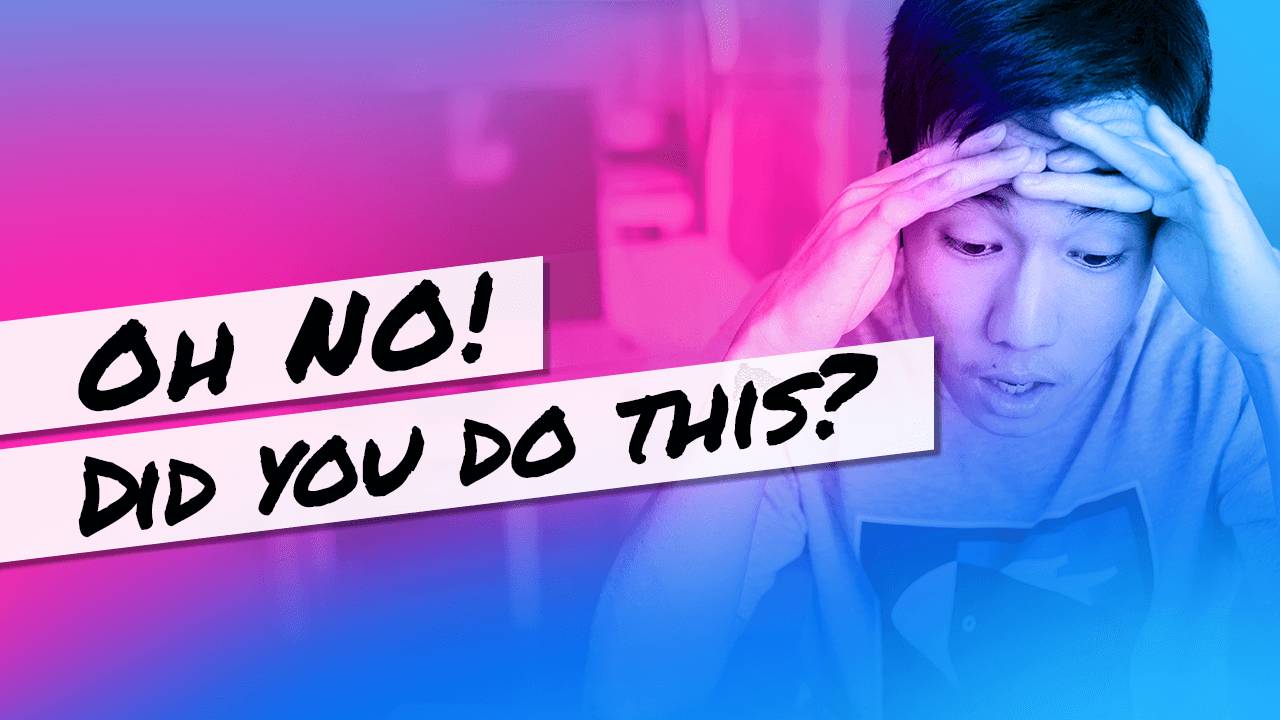Five College Essay Blunders and How to Fix Them
Nov 01, 2024
There’s a saying that some of the best writers are not particularly great at writing—they’re just good at rewriting.
Likewise, in my 10 years as a college admissions and scholarship essay coach, I’ve found that a good student essay is not usually an instant hit. On the contrary, a quality submission is usually drawn out from a systematic process of revising, rethinking, and redeploying a student’s initial concepts and ideas.
To help you make these necessary revisions in your own upcoming college application essays and scholarship contest essays, I’ve put together a list of five big student essay blunders and how to fix them.
While there may be times in your life to put on your black leather jacket, climb on your Harley, and rebel against “The Man,” a college and scholarship essay writing session is not one of them. If you can work to avoid these common essay mistakes and learn to follow these simple rules, your revised essay submissions will be enhanced significantly.
Mistake #1: The multi-topic combo meal
When you are trying to demonstrate your thoughtfulness, creativity, and eloquence—all in one essay—choosing a primary topic can be difficult. As a result, many essay writers don’t make this decision at all: They just lump all of their thoughts together like a stew made from incompatible leftovers. The result is usually a fragmented essay of incomplete arguments—a confusing jumble of unpalatable ideas.
Combat this problem by forcing yourself to make tough decisions. If the question asks, for example, about something meaningful in your life, don’t write a 300-word essay that includes the birth of your baby brother, winning the state swimming meet, and attending your grandparents’ 50th wedding anniversary. Each of these could be a solid topic, but combining all of them detracts from the weight of your words.
Mistake #2: The case of the missing response
Sometimes even the best scholarship essayists fall into the following trap: They fail to truly answer the essay questions being posed. This is especially pervasive when students recycle past essays for future applications, but fail to reshape and custom-tailor their boilerplate material for each new submission.
To avoid this, try the following exercise: Ask a friend to read your essay without knowing the question that you have been assigned. Then ask him or her to guess the application question that your essay actually answered. If what was understood doesn’t fully match the stated question, you might want to seriously rethink your submission. Remember, your essay reader shouldn’t have to be Sherlock Holmes in order to deduce how your answer is relevant.
Mistake #3: Factual brain freeze
Like a frozen Slurpee gulped a bit too fast, many essay writers make factual errors in their submissions that freeze any chances they might have had of winning. This is especially true of college and scholarship essays that emphasize history, science, or any other subjects that involve large numbers of specific facts.
Getting things right is especially important when you are submitting an essay to an organization that knows a particular subject very well. While a small deviation from the recognized tactics of General Robert E. Lee may not make a bit of difference to you, getting it wrong will stand out like a blue uniform in a sea of gray to scholarship judges from a Civil War historical society.
In general, if you are doing research online, never assume that one uncorroborated website is completely accurate.
Mistake #4: Questionable quoting
Including quotes in your essay can work to your advantage, but be very careful about how frequently you use them and how famous they may be. After all, essay evaluators want to hear what you have to say—not just what the experts, politicians, and famous historical figures have already stated.
One scholarship essay judge I spoke with told me that when writing about duty to one’s country, an astounding 50% of the applicants referenced John F. Kennedy’s famous quote, “Ask not what your country can do for you—ask what you can do for your country.” Unless you have a truly original spin on this well-worn quote, you would be better off steering clear.
Here’s a good rule of thumb: Use a quote only when it really enhances and supports your argument in a unique way. Don’t use it if it merely replaces what you could have said in your own words.
Mistake #5: The broken record
There are few things worse than having to sit through a broken record. Nevertheless, many unsuccessful student writers end up sounding like broken records because they submit essays that highlight one or two important points—and then keep restating them.
Remember that repeating yourself repeatedly makes you repetitively repetitive.
Instead, keep things moving from point to point in a logical progression of ideas. As a self-test, make sure each sentence in your essay really adds to what precedes it.
In general, always assume that essay judges have the collective attention span of a hyperactive hummingbird. So don’t send them flying off bored to another essay. Being repetitive only works for cracker-starved parrots.


